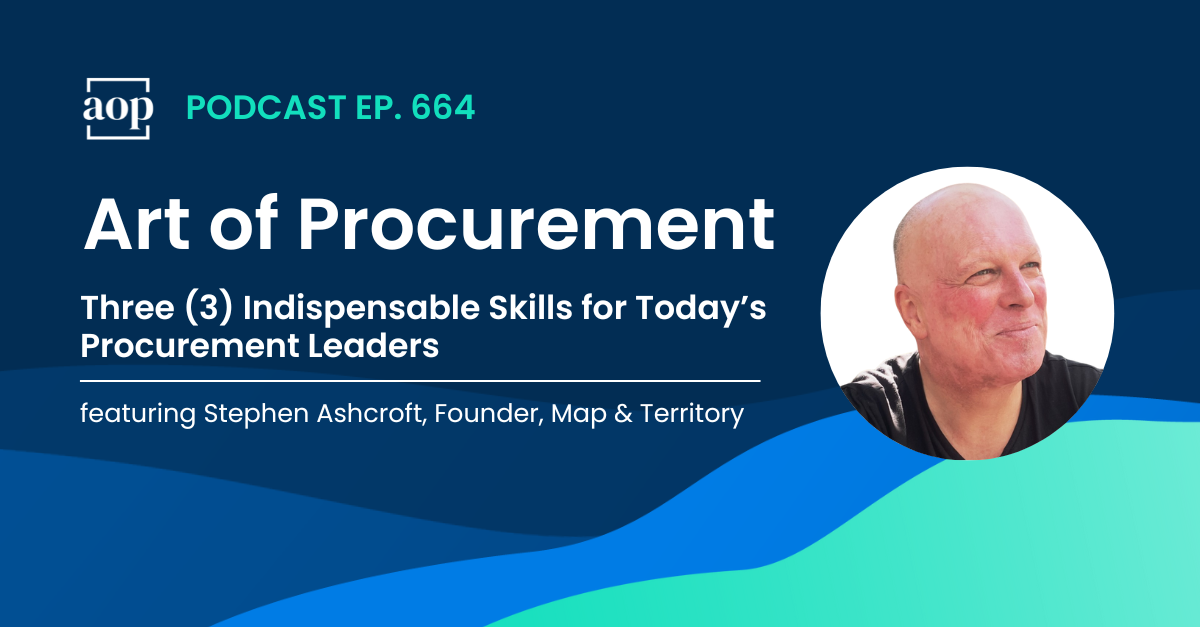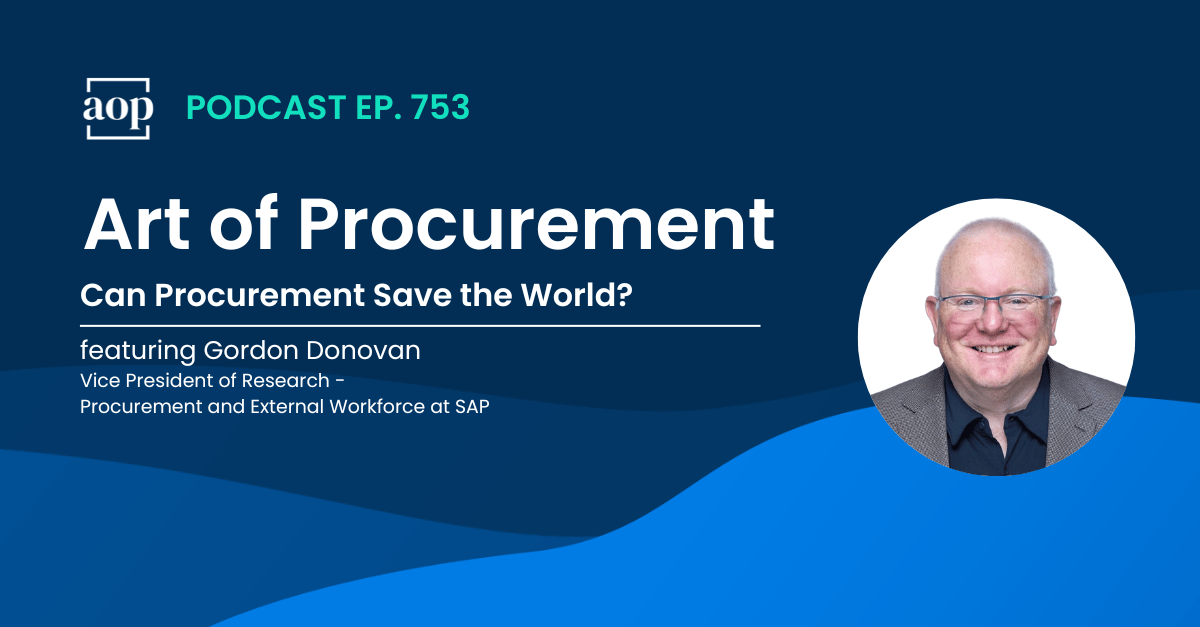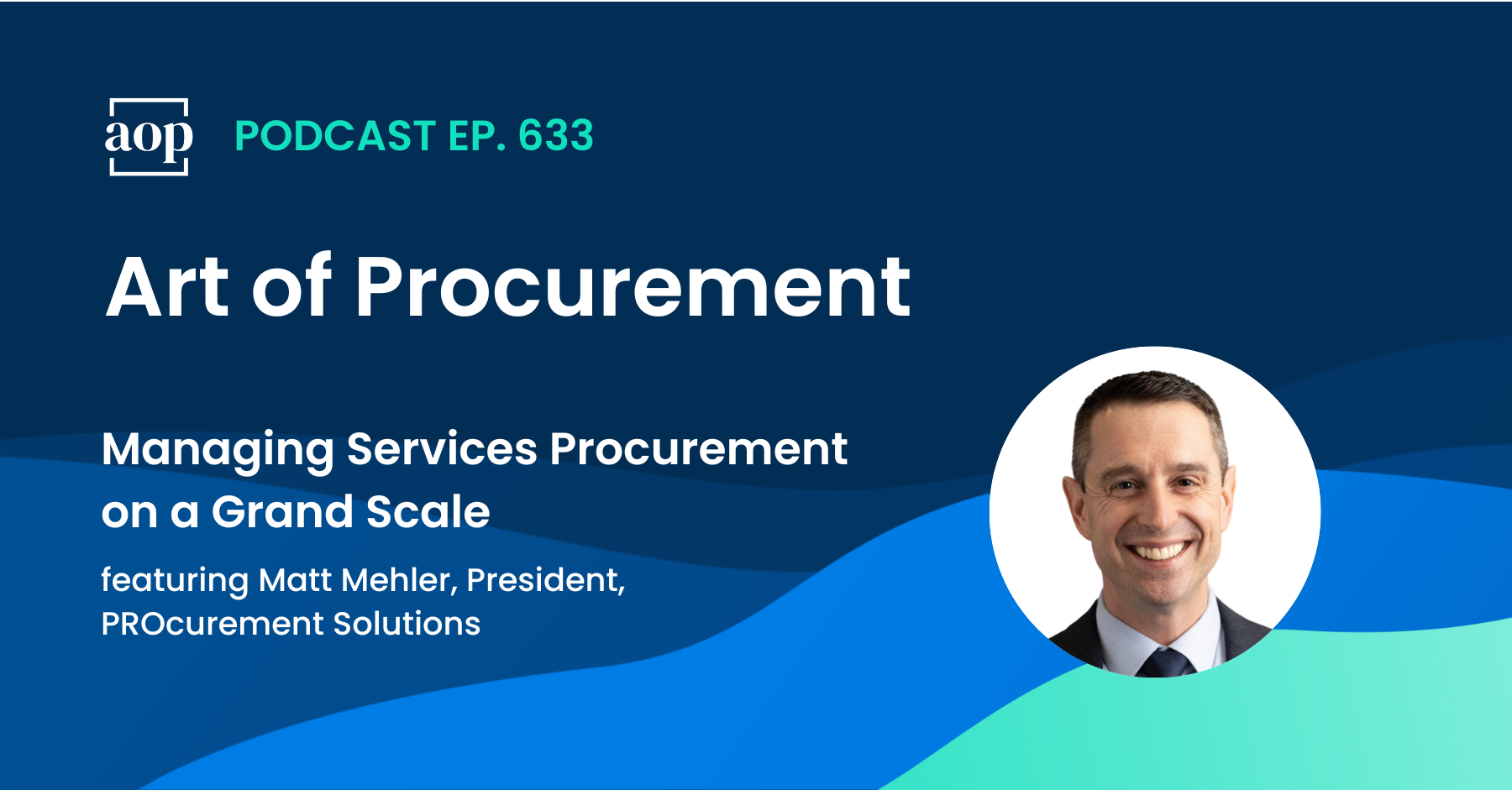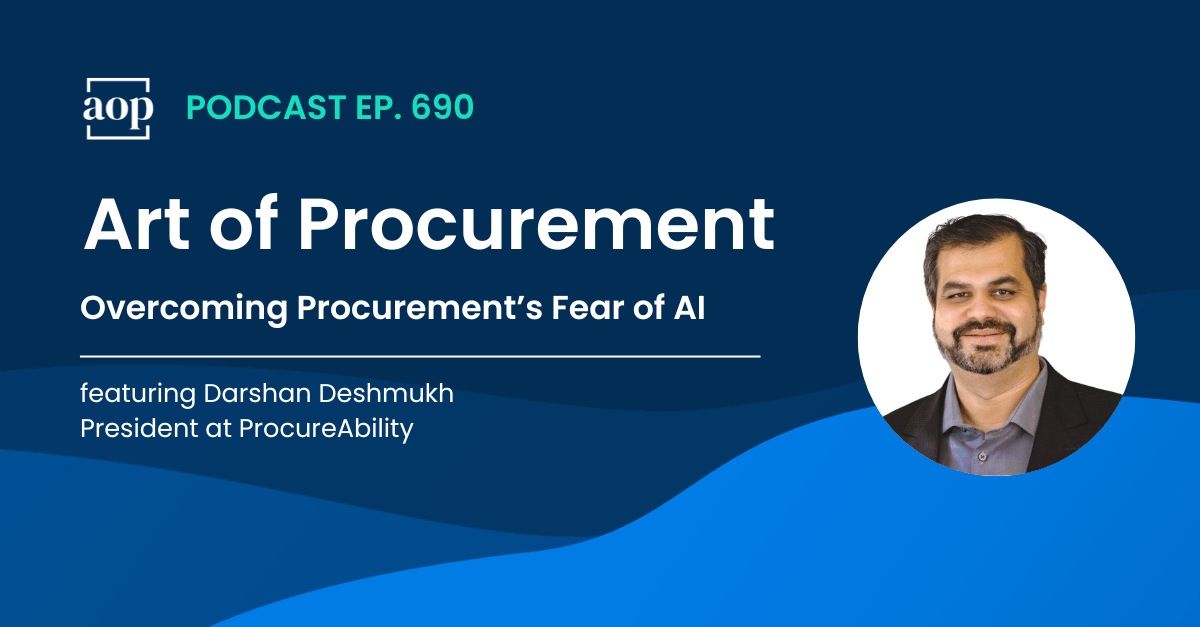3 min read
Three (3) Indispensable Skills for Today’s Procurement Leaders
Philip Ideson : Updated on December 13, 2024

“In procurement, we have a perception of the world we’re in, and we put boundaries around ourselves. But we have to explore beyond those boundaries and think about what we can do that will be different and better.” – Stephen Ashcroft
Stephen Ashcroft’s call for procurement to explore beyond their perceived boundaries resonates in a global business landscape defined by change and tumult. Adaptability and a willingness to challenge an outdated status quo are essential skills for procurement leaders who want to embrace disruption and innovation to advance procurement’s impact and expand their influence over the business.
Steve’s extensive procurement journey has taken him to over 40 countries and many different sectors and industries. In this podcast episode, Steve reflects on his decades’ long experience in procurement and shares his most valuable learnings and insights that may offer a roadmap for procurement to navigate this transformative period.
3 Indispensable Skills Procurement Needs Today
1. Learn How to Build Effective Relationships
While the value of healthy collaborations and strong business relationships in procurement might seem self-evident, it is one of the elements that is often overlooked – or taken for granted. Building trust and rapport with stakeholders, especially executive leadership, requires procurement to deliver on their commitments and build collaborative working relationships that produce concrete results and move the business closer to its goals.
“As one of my old bosses said, ‘promises made, promises kept,’” said Steve, and this rings true with suppliers, colleagues, and certainly the c-suite. “Those relationships are based on your performance. If you say you’re going to do it, you better do it.”
In many corporate environments, where procurement is relegated to tactical support roles and where everyone is not always playing by the same rules, being able to “stand for something,” says Steve, is key. And what better to stand for than trust and high performance?
Relationship building can sometimes be confused with creating office friendships or even personal connections in a business environment. And, while no one sets out to make enemies, friendship is something entirely different than a strong, healthy stakeholder relationship. Procurement should not ignore that distinction.
“You might have some good rapport with suppliers, for example, and while I don’t want them to be your enemy, they’re not your friends either,” said Steve. “What we should all be interested in is performance and tangible results. We’re interested in deliverables. If there is a friendly relationship that delivers more performance, all the better, but procurement has to recognize that performance is what we need.”
2. Don’t Lose Sight of What Matters
Prioritizing relationships also means being prepared for when things go wrong and recognizing that not all relationships will bear the same fruit. Some stakeholders require a different approach to relationship management and others need to be persuaded to recognize procurement’s value at all, much less embrace it.
“The absolute most important element that I found when you’re communicating in a difficult or high-stress situation or when you’re persuading is using logic, data,” said Steve.
“If you can gather, analyze, interpret, and communicate the right data and then make informed decisions based on that data, that’s going to be persuasive to your stakeholders, whether they support you or not.”
When procurement establishes strong KPIs and reports against them, they are better able to identify trends, risks, and opportunities, which ultimately leads to better decision making and more value to the business.
3. Become Adaptable Because Change is Inevitable
AI, a global pandemic, climate change, supply chain problems, accelerating culture changes… All are driving forces of historic change taking place in procurement, making adaptability and the ability to transform today into a moment of opportunity the most valuable skills a leader can have.
“If you’re leading procurement, and you’re saying, ‘well, we’ve always done it this way,’ you’re not going to be there long,” said Steve. “We have to recognize the need for adaptability.”
Being adaptable requires procurement not only to look externally at shifting market conditions, emerging technologies, trends, or geopolitical events, but also – and just as importantly, says Steve – at internal priorities in the business. “Senior stakeholders have their own desires around change, so procurement has to be adaptable to those as well.”
Beyond Boundaries
From the foundational significance of strong relationships to the power of data-driven decision making and the ability to continuously adapt, Steve’s insights remind procurement of the core performance drivers they need to succeed, especially in periods of rapid change and transformation.
“If you ask, ‘who wants change?’ you’ll hear ‘everybody wants change!’” said Steve, especially when that change comes in the form of progress, innovation, and growth. But, from all those who are open to and want to see that progress and change happen, “If you ask, ‘who is going to change?’ You’ll get a much smaller number of responses.” For procurement, Steve says, it’s time for that number to go up.
Subscribe to Art of Procurement
Apple | Stitcher | iHeart Radio | Email




